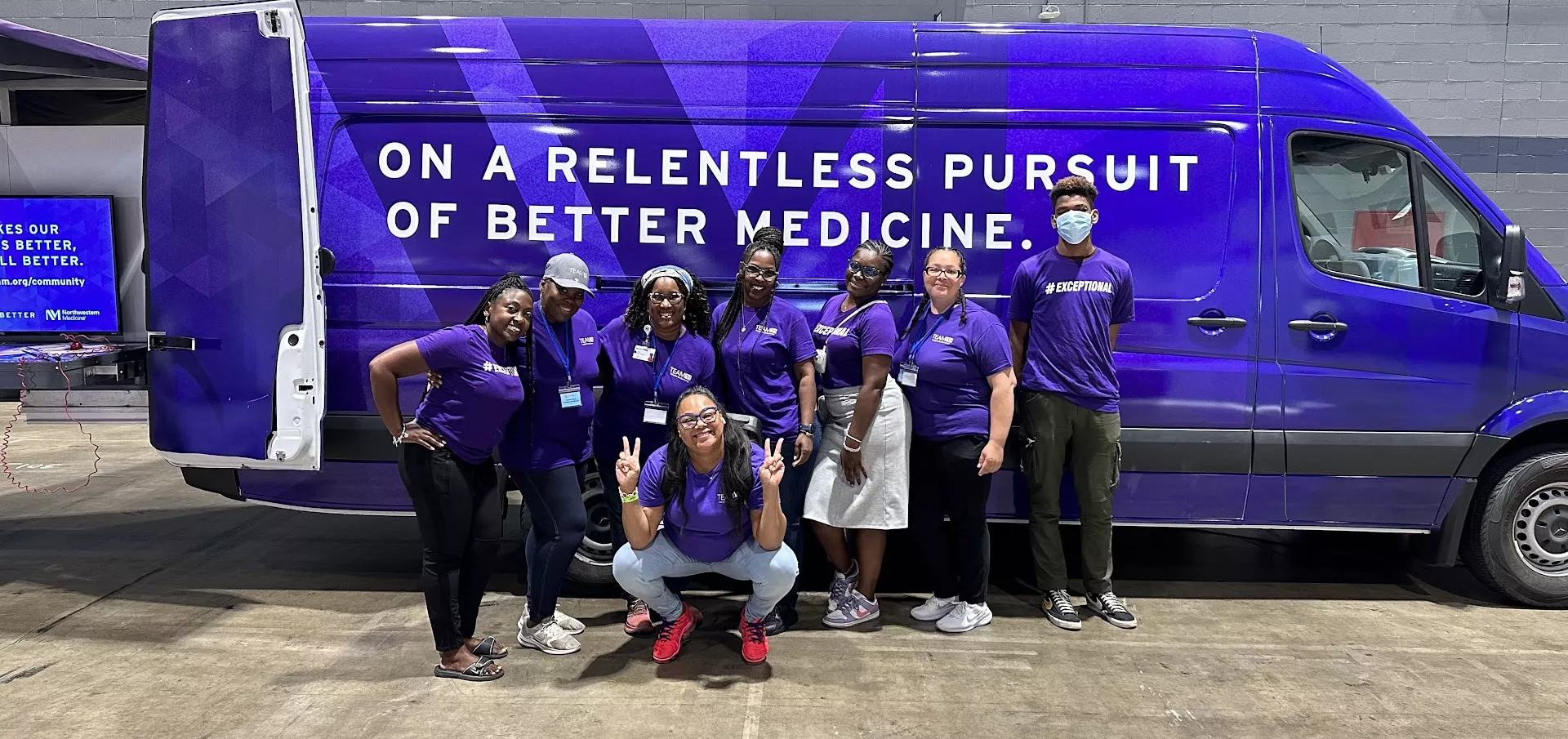Shining Light on Preventive Care and the Importance of Cancer Survivorship Programs

Biotheranostics, Inc., Hologic’s oncology division, is a proud supporter of the Chicago Cancer Initiative (CCI) out of the Robert H. Lurie Comprehensive Cancer Center at Northwestern Memorial Hospital.
CCI’s goal is to decrease cancer incidence and mortality in at-risk communities over the next decade. CCI is empowering residents and working to change perspectives about healthcare through a variety of programs that not only support cancer prevention but cancer survivorship as well. For those who have completed treatment, it is important to understand the potential risk of cancer returning as well as any long-term treatment plans that may be needed to help reduce that risk. Survivorship programs are a critical piece of the care journey, providing resources and activities that help support continued health and well-being. This comprehensive approach is becoming a model of health care in underserved communities and attracting the attention of federal, state and local Chicago elected officials who want it to succeed long term.
Quote from Jennifer Schneiders, Ph.D.
CCI’s program is taking a unique approach to community health and well-being as it relates to cancer. We know that prevention and education about screenings are critically important to reducing cancer rates. CCI provides a full spectrum of resources and programming to support people going through treatment, as well as survivors, so that everyone can thrive. They are really making a tremendous difference and we have been proud to support their mission.
Comprehensive Approach Making a Difference; Message of Prevention Reaches Residents
The neighborhood of Bronzeville, which is located on Chicago’s South Side, experiences cancer rates that are far higher than other areas in Chicago. However, in partnership with CCI, many residents of Bronzeville are working to improve the health of their community and decrease cancer rates and mortality.
Sisters Working It Out has been a pivotal CCI partner, strategist and stakeholder in Bronzeville’s future. Dedicated to eliminating racial disparities in breast cancer in Chicago, this 501c3 organization is deeply entrenched in Bronzeville’s predominantly African American community and a key driver to combat lack of health information, patients’ mistrust of the healthcare system, and limited access to cancer screening and treatment services. Sisters Working It Out has started to provide services in conjunction with CCI, opening access to care and enabling healthy lifestyles. These include facilitating:
- In-person education sessions with medical experts to increase understanding about cancer prevention and screening.
- Navigation of the health system so patients secure appropriate care.
- Nutritious food provisions for patients undergoing cancer treatment and at community events.
- Expanded access for residents to community health workers who provide health education and connections to care.

CCI promotes community education and experiences that contribute to healthy lifestyles and prevention of all cancers. Some of the other programs and activities supported by CCI and its partners include education on healthy cooking and nutrition, free fitness classes for participants, training for community members to be ambassadors for colorectal education and a shadowing program for high school students at Northwestern Memorial’s downtown campus, with the goal of fostering future careers in science and medicine.
Building a Healthcare Headquarters
Construction is underway for a new 120,000-square-foot Northwestern Medicine advanced outpatient care center in Bronzeville on the 4800 block of South Cottage Grove Avenue. With a projected opening in 2025, the center will solidify care access for an estimated 50,000 patients annually and include oncology services, urgent care, primary care and pharmaceutical services.
Learn more about CCI and Biotheranostics’ Breast Cancer Index test, which provides HR+, early-stage breast cancer survivors with information about their personal risk of recurrence 5-10 years following diagnosis, as well as whether extended anti-estrogen treatment may help reduce their risk of recurrence.

